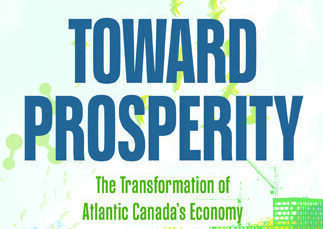Six years ago, in early November 2019, national icon Don Cherry was fired by Sportsnet from Hockey Night in Canada. According to Wikipedia, his firing was “for making controversial statements that have been variously described as anti-immigration, xenophobic, or racist, about Canadian immigrants during his show”.
Given this rather extreme description, anyone unfamiliar with this incident might be forgiven for assuming that Cherry started ringing off racial slurs like The Major on Fawlty Towers!
What Cherry really said was that – from his observation in Mississauga and Downtown Toronto – immigrants do not wear poppies in November to honour Remembrance Day as often as native-born Canadians do.
In a short monologue, Cherry described how his disappointment over the declining number of poppies in his region of the country was so pronounced that he had considered dropping a special Remembrance Day feature on his show, but was convinced by a veteran to run it anyways for the “good Canadians” that still wear a poppy.
Here’s a slightly abridged transcript of what he said:
“You know, I was talking to a veteran. I said, I’m not going to run the poppy thing anymore, because what’s the sense? I live in Mississauga, nobody wears – very few people wear – a poppy. Downtown Toronto, forget it Downtown Toronto. Nobody wears the poppy…And he says, wait a minute – how about running it for the people that buy them?
You people love – that come here, whatever it is. You love our way of life, you love our milk and honey. At least you could pay a couple bucks for a poppy or something like that. These guys paid for your way of life that you enjoy in Canada, these guys paid the biggest price. Anyhow, I’m going to run it again for you great people and good Canadians that bought a poppy. I’m still going to run it. Anyhow.”
For this short statement, Don Cherry was viciously cancelled. He was denounced by the Royal Canadian Legion, Sportsnet, and the NHL. He was roundly condemned in the media, with a particularly melodramatic CBC article titled Don Cherry’s weaponization of poppy dangerously perverts Canada’s national identity arguing that “Cherry has selfishly made this Remembrance Day about him instead of the veterans”. This was an especially audacious claim, given that it was quite obvious that the mainstream media and the angry online mobs were the ones who chose to turn the 2019 Remembrance Day period into a politically charged battleground instead of a time to honour Canada’s military history.
Despite having flashed a thumbs up after the poppy monologue, Cherry’s co-host, Ron Maclean, joined in the pile-on: “Don Cherry made remarks which were hurtful, discriminatory, which were flat out wrong. We at Sportsnet have apologized. It certainly doesn’t stand for what Sportsnet or Rogers represents. We know diversity is the strength of the country…”.
On November 11th, Sportsnet announced that he had been fired. Cherry refused to apologize, defending his monologue in a comment to the Toronto Sun: “I know what I said and I meant it. Everybody in Canada should wear a poppy to honour our fallen soldiers…I would have liked to continue doing Coach’s Corner. The problem is if I have to watch everything I say, it isn’t Coach’s Corner.”
What was it about the poppy monologue that was so controversial? Cherry’s observation that immigrants do not wear poppies as often as native-born Canadians do is occasionally made by others, and usually does not ignite a firestorm. In November 2024, veteran Ottawa Citizen columnist Bruce Deachman said as much in a column titled Where have all the Remembrance poppies gone? where he discussed various factors behind the decline of poppy-wearing in Ottawa:

“According to Statistics Canada’s most recent figures, more than 8.3 million residents, or 23 per cent of the population, are immigrants. Many of these new Canadians only recently escaped conflicts in their home countries. It’s difficult to fault them for not knowing about Vimy Ridge or Normandy.
I wondered how much lack of knowledge might be at play when…I decided to first walk through Billings Bridge shopping mall and count the number of poppy-wearers among the first 100 shoppers I passed.
That number was two, which was fewer than the number of languages I heard spoken.”
The Ottawa Citizen had no problem publishing this statement, though Deachman was essentially saying the exact same thing that Don Cherry said, only in a more diplomatic tone.
Neither men offered detailed statistical evidence for their claims, because pollsters have unsurprisingly chosen not to conduct surveys on the demographics of poppy-wearing in Canada. Nevertheless, both were as confident as anyone else in their capacity for pattern recognition, and were willing to make assertions based upon it.
Clearly, the reason for Don Cherry’s cancellation is that he added a value judgement onto his observation. He argued that immigrants should “pay a couple bucks for a poppy” out of gratitude for living in a country which provides abundant “milk and honey”. By this, he was presumably referring to such benefits as universal healthcare, employment insurance, the Canada Pension Plan (CPP), clean water, job opportunities, equality before the law, police that do not ask for bribes, parliamentary democracy, and much more. Two dollars does seem like a fairly low price to pay for such advantages.
Cherry also used the term “you people”, drawing a distinction between native-born Canadians and immigrants – or at least, immigrants who refuse to assimilate to the norms and customs of their host society. On its face, this term is fairly innocuous, but always draws particularly ire because it implies that there is some difference between old stock Canadians and immigrants who have just touched down at Pearson Airport. We are not supposed to make this kind of distinction, except when disbursing multiculturalism funding or advertising for affirmative action positions – in which case, distinctions of this nature are heavily emphasized, and indeed trumpeted.
Ultimately, Don Cherry was cancelled and fired because he dared to criticize the multicultural orthodoxy that has been imposed on Canadians since Pierre Trudeau introduced official multiculturalism in 1971 – a policy which he did not campaign on, and which he implemented against the recommendation of the Royal Commission on Bilingualism and Biculturalism.
The Commission was established by Prime Minister Lester B. Pearson in 1963 to “recommend what steps should be taken to develop the Canadian Confederation on the basis of an equal partnership between the two founding races [British and French], taking into account the contribution made by the other ethnic groups to the cultural enrichment of Canada”.
While the commissioners rightly praised the contributions made by all who have made Canada their home, they nevertheless suggested that immigrants learn one of “two official languages” and integrate into either of the “two predominant cultures that have produced two societies – Francophone and Anglophone – which form two distinct communities within an overall Canadian context.”
Trudeau Senior’s government did resonate with the Commission’s endorsement of bilingualism, but its endorsement of biculturalism was firmly rejected in favour of multiculturalism.
In a speech to Parliament in October 1971, Pierre Trudeau declared “multiculturalism within a bilingual framework” to be Canada’s new modus operandi. He claimed that “there is no official culture” in Canada, and promised that his policy of state multiculturalism would “help to break down discriminatory attitudes and cultural jealousies”.
Pierre Trudeau’s claim that Canada has “no official culture” bears chilling similarities to how his son would describe the country shortly after he followed in his father’s footsteps to the PMO a little over four decades later. In a post-election interview with the New York Times for a feature article – aptly titled Trudeau’s Canada, Again – Justin Trudeau said Canada has “no core identity” and that we are “the first postnational state”. Whereas this description may well sound positively dystopian to most people, Trudeau seemed to view Canada’s new “postnational” character as a courageous step into a brave new world.
Interestingly, Pierre Trudeau is said to have expressed regret at the results of multiculturalism decades after implementing it. Here is one account of this startling admission, found in the introduction of a 2010 paper by outspoken Canadian critic of multiculturalism Salim Mansur:
“Sometime in the mid-1990s, when Pierre Trudeau made a rare visit to the Parliament in Ottawa, the speaker of the House of Commons arranged for a private luncheon attended by a dozen selectively invited Liberal members. Each guest was given the opportunity to pose one question to the former prime minister. Chris Cobb, writing in the Ottawa Citizen nearly a decade later, recalled the exchange between Trudeau and invited guests as some of those present recollected it. After several relatively routine questions, former Liberal MP John Bryden remembered asking Trudeau about the multiculturalism policy his government introduced in the early 1970s. In Cobb’s retelling, Bryden asked,
‘Mr. Trudeau, you were one of the key architects of multiculturalism and now we are in a situation where many newcomers to Canada consider their ethnicity before being Canadian. Is this the outcome you wanted?’
There was silence around the table as the former prime minister thought before replying: ‘No, this is not what I wanted.’”
If the architect of Canadian state multiculturalism ending up feeling that his invention had run away from him, he was right. Multiculturalism took on a life of its own, quickly transforming from a policy characterized by the energetic optimism of the early Pierre Trudeau years into a chilly, rigid, unforgiving ideology complete with sacred and unquestionable tenets.
The effects of multicultural ideology on everything from politics to jurisprudence to the Canadian psyche itself were dramatic. Three decades after state multiculturalism was imposed, the province of Ontario found itself debating whether to legalize Sharia courts for Muslims (it ultimately decided against this). Four decades after it was imposed, fanatically pro-immigration Stephen Harper was accused of racism for saying the words “old stock Canadians” in a debate.
By November 2019, multiculturalism had become such an inflexible orthodoxy that Don Cherry was fired, cancelled, and wiped from the public sphere for saying that immigrants should wear poppies to honour Remembrance Day.
All orthodoxies that become excessively brittle and intolerant of dissent are doomed to failure in the long term.
We are already seeing indications of a swing in public opinion against multiculturalism, with a Leger poll released in 2023 finding that 55% of Canadians endorsed a model of assimilation in which newcomers are encouraged to “embrace broad mainstream values and traditions and leave behind elements of their cultural identity that may be incompatible with that”. Only 26% of respondents felt that immigrants should be told to “maintain and promote their own cultural and religious identities”.
Or, as Don Cherry would say: “You love our way of life, you love our milk and honey. At least you could pay a couple bucks for a poppy or something like that.”
All content on this website is copyrighted, and cannot be republished or reproduced without permission.
Share this article!





The NHL circus act that Cheery and Maclean grew for years ended here. Don couldn’t have possibly known what percentage of immigrants wear a poppy to commemorate Remembrance day compared to “native-born Canadians”. It would be totally impossible for anyone to verify that with any accuracy. Furthermore, Cherry’s political statement never would have become what it did if the witless partner had diverted to talking about hockey and not boosted the goofy ill placed mini drama with his own dumb statement.
I once enjoyed Don Cherry weighing in on things hockey, but decades ago when he started to rail on Swedes and Russians coming into the NHL there began his ultimate downfall. He loved the notoriety of his crazy suits, warts and all, but some of his fans began to dislike him – alot!
‘
Frankly, after having lived through dozens of Don Cherry’s mean spirited “nothing to do with hockey whatsoever”monologues, I’m amazed he lasted as long as he did. He did I believe because his handlers recognized an uptick in viewership (says something about hockey night in Canada eh?) looking on to witness the latest circus act – like most acts you’re just never sure what you’ll get. One thing you did come to expect from the pompous duo, would have little to do with hockey.
I stopped watching a decade before Don was sacked. I wanted to see a hockey game which itself had become more like a boxing match featuring goons on skates, with a clown act thrown in as filler between rounds.
Good piece – Riley keep em coming.
Excellent article about Don Cherry, but even more so, the article correctly defines the damage – even if measured simply in how many poppies foreigners / immigrants (dont) wear – that is being done to Canada and canadians by catasrophicaly high immigration levels. The destruction is taking place at so many levels – our democratic process, socially, economically, all our services (like health and education), “our” civil service, and environmentally -that many, if not most, Canadians are unaware of how dearly they are paying for Trudeaus (2) and Harpers immigration binging. We are well into broad scale decline as a nation, but it will get much worse yearly. Incidentally, I counted poppy wearers at a public event in southern B.C. yesterday, an event at which there were at least 3 cadets promoting poppy availability, and it ended up at 6%.
Glad to hear you enjoyed the article, Brian! People are beginning to wake up on immigration big time, more and more everyday.
Don Cherry is bigoted. It’s as simple as that.
He made comments that didn’t reflect the value and principles most Canadians live by.
Multiculturalism has largely been a benefit to Canada and it’s worked until recently, where loose immigration policies and divisive politics have been abused.
Without it, Canada is just America but with more fan service to the British monarchs who do absolutely nothing for us but drain our resources with useless positions like the Govenor General that eat up millions if not hundreds of millions in pomp and circumstance.